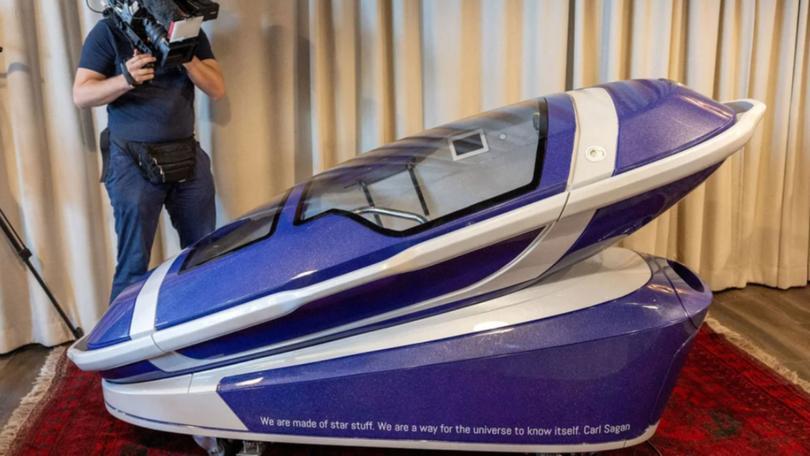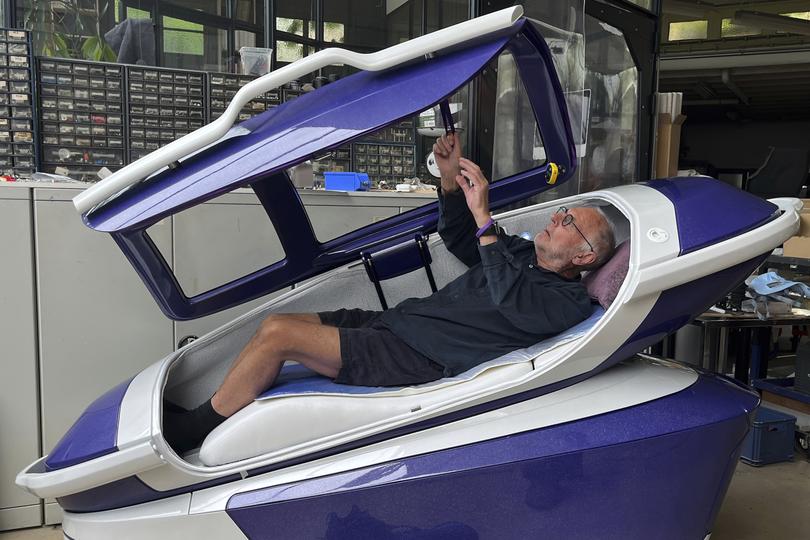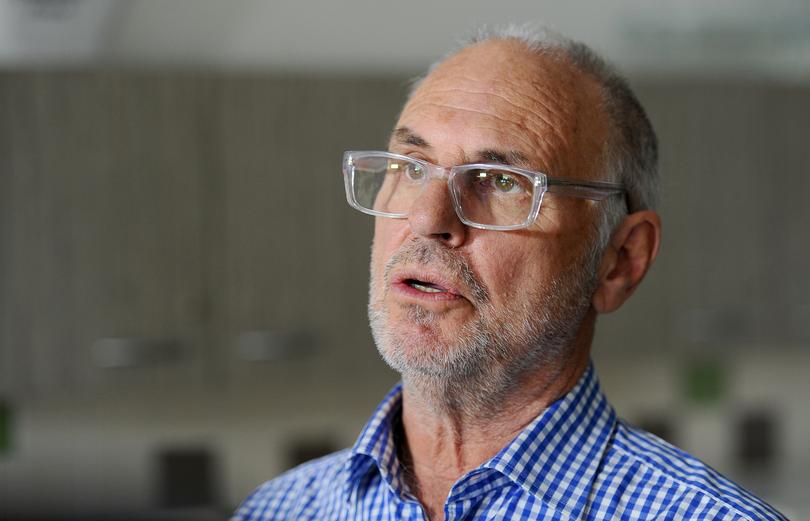The last eight words heard by woman killed in illegal suicide machine death in Switzerland revealed
Four people were detained after the Australian suicide capsule was used for the first time this week.

The inventor of a suicide machine which caused the death of a woman in northern Switzerland, and triggered the arrest of four people, has revealed the last words the user of the “Sarco” suicide capsule would have heard.
The “Sarco” capsule was used for the first time on Monday in the woods near a forest cabin in the municipality of Merishausen, near the German border, with just one other person present at the time.
The 64-year-old American woman who died inside the pod had been suffering from a severely compromised immune system, a spokesperson for the group behind the capsule, The Last Resort, said.
Sign up to The Nightly's newsletters.
Get the first look at the digital newspaper, curated daily stories and breaking headlines delivered to your inbox.
By continuing you agree to our Terms and Privacy Policy.Florian Willet, co-president of The Last Resort, was the only person who witnessed the death, and was among the four people detained by Swiss police, along with a Dutch journalist and two Swiss people, the spokesperson said.
Prosecutors in Schaffhausen have opened criminal proceedings against several people for “inducing and aiding and abetting suicide,” a police statement said on Tuesday, adding several people were detained, without giving details about them or the deceased.
The “Sarco” suicide capsule was invented by Philip Nitschke, an Australian physician famous for his work on assisted suicide since the 1990s, and a trained doctor behind Exit International, which created the capsule.
He told Agence France-Presse (AFP) that the last words heard by any user killed in the Sarco capsule would be the recorded prompt: “If you want to die, press this button.”
The occupant then releases nitrogen gas inside, lowering the amount of oxygen to lethal levels within 10 minutes.
“Within two breaths of air at that low level of oxygen, they will start to feel disorientated, uncoordinated and slightly euphoric before losing consciousness,” Nitschke told AFP.
“They will then stay in that state of unconsciousness for ... around about five minutes before death will take place.”

In a statement issued by The Last Resort, Willet had described the death as “peaceful, fast and dignified”.
The Last Resort spokesperson said the woman had passed psychiatric evaluations before ending her life.
Nitschke previously told AP that his organisation received advice from lawyers in Switzerland that the use of the Sarco would be legal in the country.
He said in an Exit International statement on Tuesday, that he was “pleased that the Sarco had performed exactly as it had been designed ... to provide an elective, non-drug, peaceful death at the time of the person’s choosing”.
The Sarco suicide machine’s spaceship-looking design was made “to suggest a sense of occasion: of travel to a ‘new destination’,” according to Exit International.
But Elisabeth Baume-Schneider, the Swiss minister responsible for health, said on Monday that the capsule does not meet the requirements of product safety law, and that its use of nitrogen is not legally compliant.

Switzerland has been a magnet for advocates of assisted suicide due to laws that make it legal there, and The Last Resort says its legal advice was that it could be deployed.
The capsule has generated considerable media attention and discussion among authorities on whether they would allow it.
Swiss law allows assisted suicide so long as the person takes his or her life with no “external assistance” and those who help the person die do not do so for “any self-serving motive,” according to a government website.
Unlike some other countries, including the Netherlands, Switzerland does not allow euthanasia, which involves health care practitioners killing patients with a lethal injection at their request and in specific circumstances.
Switzerland is among the only countries in the world where foreigners can travel to legally end their lives, and has a number of organisations that are dedicated to helping people kill themselves.
Some lawmakers in Switzerland have argued that the law is unclear and have sought to close what they call legal loopholes.
If you need help in a crisis, call Lifeline on 13 11 14. For further information about depression contact beyondblue on 1300 224 636 or talk to your GP, local health professional or someone you trust.
- With NBC
Originally published on Reuters
